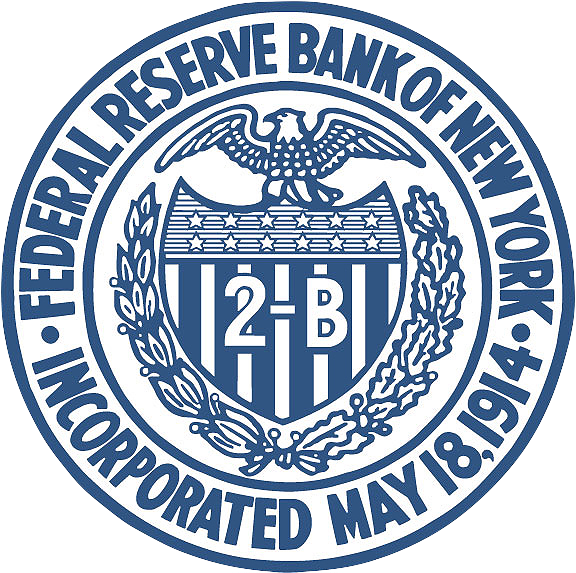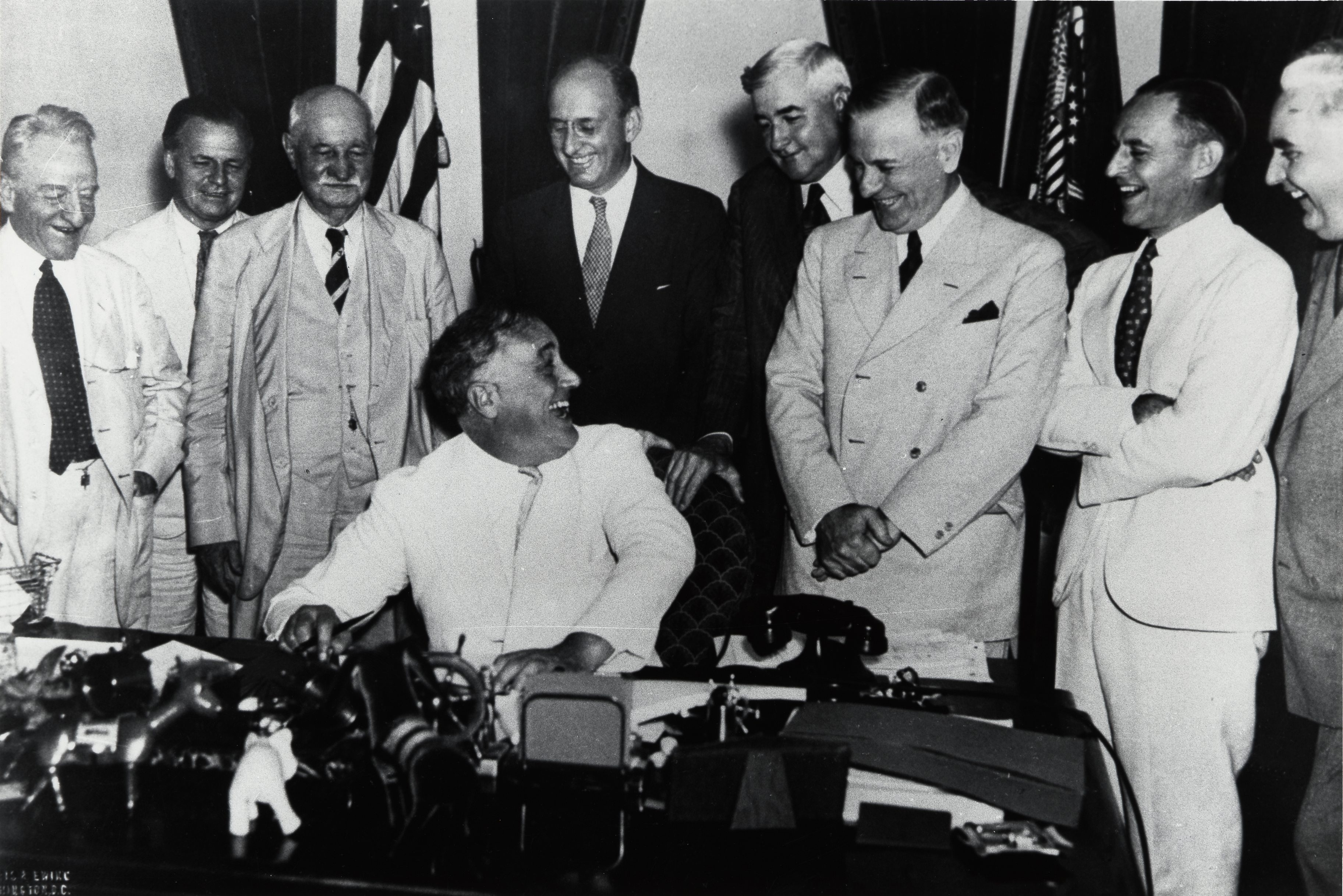|
Debt Monetization
Debt monetization or monetary financing is the practice of a government borrowing money from the central bank to finance public spending instead of selling bonds to private investors or raising taxes. The central banks who buy government debt, are essentially creating new money in the process to do so. This practice is often informally and pejoratively called printing money or money creation. It is prohibited in many countries, because it is considered dangerous due to the risk of creating runaway inflation. To prevent inflation getting out of hand, central banks often keep a close eye on the Consumer Price Index, as to not create too much new money. Forms of monetary financing Monetary financing can take various forms depending on the intention and precise policy design. The central bank can buy the bonds issued by the government, thereby absorbing the debt that would have otherwise been sold through the financial markets, or the government can simply be allowed to have a ... [...More Info...] [...Related Items...] OR: [Wikipedia] [Google] [Baidu] |
Central Bank
A central bank, reserve bank, or monetary authority is an institution that manages the currency and monetary policy of a country or monetary union, and oversees their commercial banking system. In contrast to a commercial bank, a central bank possesses a monopoly on increasing the monetary base. Most central banks also have supervisory and regulatory powers to ensure the stability of member institutions, to prevent bank runs, and to discourage reckless or fraudulent behavior by member banks. Central banks in most developed nations are institutionally independent from political interference. Still, limited control by the executive and legislative bodies exists. Activities of central banks Functions of a central bank usually include: * Monetary policy: by setting the official interest rate and controlling the money supply; *Financial stability: acting as a government's banker and as the bankers' bank (" lender of last resort"); * Reserve management: managing a cou ... [...More Info...] [...Related Items...] OR: [Wikipedia] [Google] [Baidu] |
Quantitative Easing
Quantitative easing (QE) is a monetary policy action whereby a central bank purchases predetermined amounts of government bonds or other financial assets in order to stimulate economic activity. Quantitative easing is a novel form of monetary policy that came into wide application after the financial crisis of 2007-2008. It is intended to stabilize an economic contraction when inflation is very low or negative and when standard monetary policy instruments have become ineffective. Quantitative tightening (QT) does the opposite, where for monetary policy reasons, a central bank sells off some portion of its own held or previously purchased government bonds or other financial assets, to a mix of commercial banks and other financial institutions, usually after periods of their own, earlier, quantitative easing purchases. Similar to conventional open-market operations used to implement monetary policy, a central bank implements quantitative easing by buying financial assets from co ... [...More Info...] [...Related Items...] OR: [Wikipedia] [Google] [Baidu] |
The Daily Telegraph
''The Daily Telegraph'', known online and elsewhere as ''The Telegraph'', is a national British daily broadsheet newspaper published in London by Telegraph Media Group and distributed across the United Kingdom and internationally. It was founded by Arthur B. Sleigh in 1855 as ''The Daily Telegraph & Courier''. Considered a newspaper of record over ''The Times'' in the UK in the years up to 1997, ''The Telegraph'' generally has a reputation for high-quality journalism, and has been described as being "one of the world's great titles". The paper's motto, "Was, is, and will be", appears in the editorial pages and has featured in every edition of the newspaper since 19 April 1858. The paper had a circulation of 363,183 in December 2018, descending further until it withdrew from newspaper circulation audits in 2019, having declined almost 80%, from 1.4 million in 1980.United Newspapers PLC and Fleet Holdings PLC', Monopolies and Mergers Commission (1985), pp. 5–16. Its ... [...More Info...] [...Related Items...] OR: [Wikipedia] [Google] [Baidu] |
Bank Of Japan
The is the central bank of Japan. Nussbaum, Louis Frédéric. (2005). "Nihon Ginkō" in The bank is often called for short. It has its headquarters in Chūō, Tokyo. History Like most modern Japanese institutions, the Bank of Japan was founded after the Meiji Restoration. Prior to the Restoration, Japan's feudal fiefs all issued their own money, ''hansatsu'', in an array of incompatible denominations, but the ''New Currency Act'' of Meiji 4 (1871) did away with these and established the yen as the new decimal currency, which had parity with the Mexican silver dollar. The former han (fiefs) became prefectures and their mints became private chartered banks which, however, initially retained the right to print money. For a time both the central government and these so-called "national" banks issued money. A period of unanticipated consequences was ended when the Bank of Japan was founded in Meiji 15 (10 October 1882), under the Bank of Japan Act 1882 (27 June 1882), after a ... [...More Info...] [...Related Items...] OR: [Wikipedia] [Google] [Baidu] |
The Mainichi
The is one of the major newspapers in Japan, published by In addition to the ''Mainichi Shimbun'', which is printed twice a day in several local editions, Mainichi also operates an English language news website called ''The Mainichi'' (previously ''Mainichi Daily News''), and publishes a bilingual news magazine, ''Mainichi Weekly''. It also publishes paperbacks, books and other magazines, including a weekly news magazine, ''Sunday Mainichi''. It is one of the four national newspapers in Japan; the other three are the '' Asahi Shimbun'', the ''Yomiuri Shimbun'' and the ''Nihon Keizai Shimbun''. The Sankei Shimbun and The '' Chunichi Shimbun'' are not currently in the position of a national newspaper despite a large circulation for the both respectively. History The history of the ''Mainichi Shinbun'' began with the founding of two papers during the Meiji period. The ''Tokyo Nichi Nichi Shimbun'' was founded first, in 1872. The ''Mainichi'' claims that it is the oldest exist ... [...More Info...] [...Related Items...] OR: [Wikipedia] [Google] [Baidu] |
Federal Reserve Bank Of New York
The Federal Reserve Bank of New York is one of the 12 Federal Reserve Banks of the United States. It is responsible for the Second District of the Federal Reserve System, which encompasses the State of New York, the 12 northern counties of New Jersey, Fairfield County in Connecticut, Puerto Rico, and the U.S. Virgin Islands. Located at 33 Liberty Street in Lower Manhattan, it is by far the largest (by assets), the most active (by volume), and the most influential of the Reserve Banks. The Federal Reserve Bank of New York is solely responsible for implementing monetary policy on behalf of the Federal Open Market Committee and acts as the market agent of the entire Federal Reserve System (as it houses the Open Market Trading Desk and manages System Open Market Account). It is also the sole fiscal agent of the U.S. Department of the Treasury, the bearer of the Treasury's General Account, and the custodian of the world's largest gold storage reserve. Aside from these distin ... [...More Info...] [...Related Items...] OR: [Wikipedia] [Google] [Baidu] |
United States Home Front During World War II
The United States home front during World War II supported the war effort in many ways, including a wide range of volunteer efforts and submitting to government-managed rationing and price controls. There was a general feeling of agreement that the sacrifices were for the national good during the war. The labor market changed radically. Peacetime conflicts concerning race and labor took on a special dimension because of the pressure for national unity. The Hollywood film industry was important for propaganda. Every aspect of life from politics to personal savings changed when put on a wartime footing. This was achieved by tens of millions of workers moving from low to high productivity jobs in industrial centers. Millions of students, retirees, housewives, and unemployed moved into the active labor force. The hours they had to work increased dramatically as the time for leisure activities declined sharply. Gasoline, meat, and clothing were tightly rationed. Most families were al ... [...More Info...] [...Related Items...] OR: [Wikipedia] [Google] [Baidu] |
Banking Act Of 1935
The ''Banking Act of 1935'' passed on August 19, 1935 and was signed into law by the president, Franklin D. Roosevelt, on August 23. The Act changed the structure and power distribution in the Federal Reserve System that began with the ''Banking Act of 1933''. The Act contained three titles. Title I Title I amended section 12B of the 1933 Act with regards to the creation of the Federal Deposit Insurance Corporation (FDIC) and its duties. The board of directors of the FDIC would include the Comptroller of Currency and two members selected by the President and confirmed by the Senate. They shall hold a term of 6 years and receive an annual salary of $10,000. Title I also established the maximum insured deposit to be $5,000. FDIC The Act of 1935 made the FDIC permanent, and included the following provisions: * All accounts would be insured up to $5,000. At this time 98.5% of all deposits were under the $5,000 limit. This was a dramatic change from the initial guidelines under ... [...More Info...] [...Related Items...] OR: [Wikipedia] [Google] [Baidu] |
European Central Bank
The European Central Bank (ECB) is the prime component of the monetary Eurosystem and the European System of Central Banks (ESCB) as well as one of seven institutions of the European Union. It is one of the world's most important central banks. The ECB Governing Council makes the projects for the monetary policy for the European Union with suggestions and recommendations and to the Eurozone with more direct applications of such policies, it also administers the foreign exchange reserves of EU member states in the Eurozone, engages in foreign exchange operations, and defines the intermediate monetary aims and objectives, and also the common interest rates for the EU. The ECB Executive Board makes policies and decisions of the Governing Council, and may give direction to the national central banks, especially when doing so for the Eurozone central banks. The ECB has the exclusive right to authorise the issuance of euro banknotes. EU member states can issue their langu ... [...More Info...] [...Related Items...] OR: [Wikipedia] [Google] [Baidu] |
Lisbon Treaty
The Treaty of Lisbon (initially known as the Reform Treaty) is an international agreement that amends the two treaties which form the constitutional basis of the European Union (EU). The Treaty of Lisbon, which was signed by the EU member states on 13 December 2007, entered into force on 1 December 2009.eur-lex.europa.eu: " Official Journal of the European Union C 115 Volume 51, 9 May 2008, retrieved 1 June 2014 It amends the (1992), known in updated form as the |
Eurozone
The euro area, commonly called eurozone (EZ), is a currency union of 19 member states of the European Union (EU) that have adopted the euro ( €) as their primary currency and sole legal tender, and have thus fully implemented EMU policies. The 19 eurozone members are Austria, Belgium, Cyprus, Estonia, Finland, France, Germany, Greece, Ireland, Italy, Latvia, Lithuania, Luxembourg, Malta, the Netherlands, Portugal, Slovakia, Slovenia, and Spain. The eight non-eurozone members of the EU are Bulgaria, Czech Republic, Croatia, Denmark, Hungary, Poland, Romania, and Sweden. They continue to use their own national currencies, albeit all but Denmark are obliged to join once they meet the euro convergence criteria. Croatia will become the 20th member on 1 January 2023. Among non-EU member states, Andorra, Monaco, San Marino, and Vatican City have formal agreements with the EU to use the euro as their official currency and issue their own coins. In addition, Kosovo and Mo ... [...More Info...] [...Related Items...] OR: [Wikipedia] [Google] [Baidu] |
Hyperinflation In Venezuela
Hyperinflation in Venezuela is the currency instability in Venezuela that began in 2016 during the country's ongoing socioeconomic and political crisis. Venezuela began experiencing continuous and uninterrupted inflation in 1983, with double-digit annual inflation rates. Inflation rates became the highest in the world in 2014 under Nicolás Maduro, and continued to increase in the following years, with inflation exceeding 1,000,000% by 2018. In comparison to previous hyperinflationary episodes, the ongoing hyperinflation crisis is more severe than those of Argentina, Bolivia, Brazil, Nicaragua, and Peru in the 1980s and 1990s, and that of Zimbabwe in the late-2000s. In 2014, the annual inflation rate reached 69%, the highest in the world. In 2015, the inflation rate was 181%, again the highest in the world and the highest in the country's history at the time. The rate reached 800% in 2016, over 4,000% in 2017, and about 1,700,000% in 2018, and reaching 2,000,000%, with Venezu ... [...More Info...] [...Related Items...] OR: [Wikipedia] [Google] [Baidu] |











